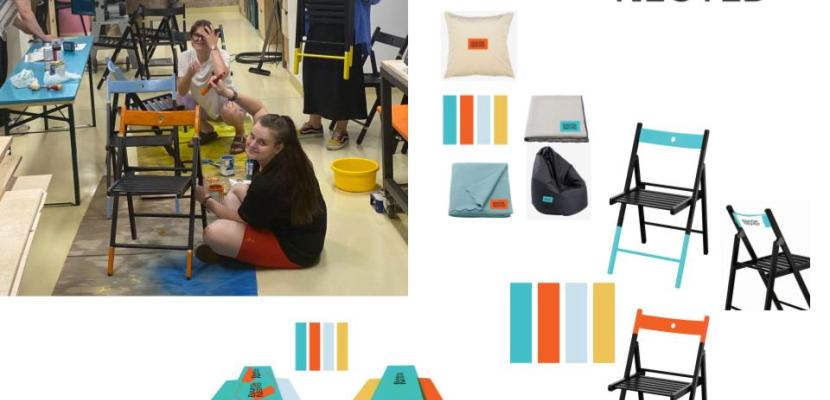
Bartók Roundtable & Event Equipment Sharing Economy Pilot

About this good practice
The Bartók-negyed Equipment Sharing pilot project addresses the challenge of accessing necessary equipment for community events, often a costly and time-consuming task for organizers. The initiative emerged from the 2023 Bartók-negyed Roundtable discussions, where 11 local groups identified shared priorities for improving community infrastructure. Equipment sharing was among the top five issues, driven by the lack of affordable, readily available event resources in the district.
The practice aims to foster collaboration, reduce costs, and minimize waste by encouraging shared use of equipment for events. Implementation began with assessing local needs through a detailed equipment demand survey. Competitive quotes were obtained, and essential items—such as furniture, audiovisual tools, and decorations—were procured and branded. An online catalog and booking system were developed to streamline access, while agreements were drafted to define partnership terms.
The system is built on partnerships with local organizations, which contribute their own resources to expand the shared inventory among the partnership. This ensures broad access to over 200 items for community-building events within Bartók-negyed. By June 2024, the system supported 10 events in the first pilot period, including Budapest100 and the HENGERMALOM festival, reducing costs and logistical burdens for organizers.
Resources needed
The Bartók-negyed pilot utilized the 2024 budget of KözPont Kft., including equipment procurement, branding, and system setup costs. Financial details include competitive bids for over 200 items, while human resources involved project managers, technical staff, and partners for inventory management.
Evidence of success
The Bartók-negyed Equipment Sharing pilot is great because of its tangible benefits and alignment with sustainability goals. Between June and September 2024, the project supported seven major events, including Budapest100 and the BÁRKA Festival, reducing event costs and logistical burdens. Over 200 shared items were cataloged, enhancing resource access for community-building activities. Partnerships with four organizations expanded the inventory, while an online booking system streamlined use.
Potential for learning or transfer
This practice is highly transferable and valuable for other regions, particularly urban areas facing similar challenges in community resource access. Its key success factors include:
1. Collaboration: Partnerships with local organizations enhance resource availability and foster shared responsibility.
2. Needs Assessment: Conducting surveys and engaging stakeholders ensures the project aligns with local demands.
3. Scalability: The modular inventory and online booking system can be adapted to different scales and contexts.
4. Sustainability: By promoting resource sharing, the practice reduces environmental impact and costs.
Potential hurdles include initial funding requirements, logistical challenges in managing shared resources and ensuring equitable access. These can be mitigated through transparent agreements and phased implementation.